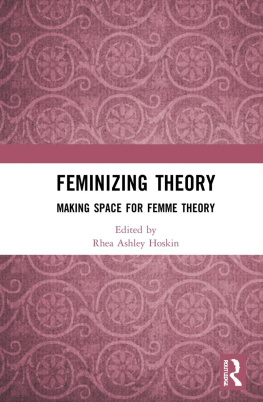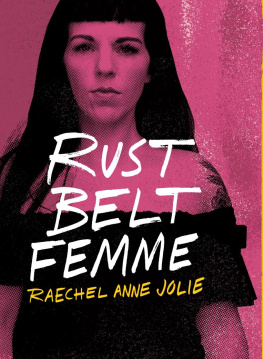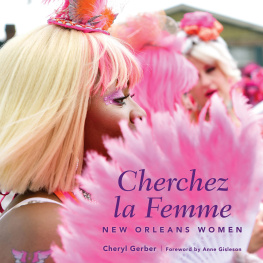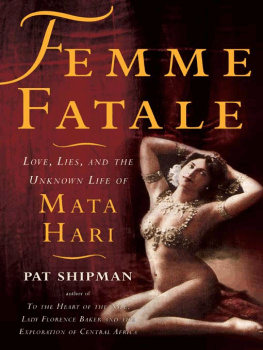Feminizing Theory
The term femme originates from 1940s Western working-class lesbian bar culture, wherein femme referred to a feminine lesbian who was typically in a relationship with a butch lesbian. Expanding from this original meaning, femme has since emerged as a form of femininity reclaimed by queer and culturally marginalized folks. Importantly, femme has also evolved into a theoretical framework. Femme theory argues that femme constitutes a missing piece in queer and feminist discourses of femininity. Attending to this gap, femme theory centres on queer femininities as a means of pushing against the deeply embedded masculinist orientation of queer and gender theory. Thus, femme theory offers tools to shift the way researchers and readers understand femininity as well as systems of gender and power more broadly.
This book is an introduction to femme theory, showcasing how femme can be used as a theoretical framework across a variety of contexts and disciplines, such as Film & Media Studies, Psychology, Sociology, or Critical Disability Studies; from countries, including Canada, China, Guyana and the USA. Femme theory asks readers to reconsider how femininity is conceptualized, revealing some of the many taken-for-granted assumptions that are embedded within cultural discourses of gender, sexuality, and power.
The chapters in this book were originally published as a special issue of the Journal of Lesbian Studies.
Rhea Ashley Hoskin PhD, is an interdisciplinary feminist sociologist whose work focuses on femme theory, critical femininities, and femmephobia. Her work examines perceptions of femininity and sources of prejudice rooted in the devaluation or regulation of femininity. Rhea is an Ontario Womens Health Scholar and an AMTD Global Talent Postdoctoral Fellow at the University of Waterloo.
First published 2022
by Routledge
2 Park Square, Milton Park, Abingdon, Oxon, OX14 4RN
and by Routledge
605 Third Avenue, New York, NY 10158
Routledge is an imprint of the Taylor & Francis Group, an informa business
2022 Taylor & Francis
All rights reserved. No part of this book may be reprinted or reproduced or utilised in any form or by any electronic, mechanical, or other means, now known or hereafter invented, including photocopying and recording, or in any information storage or retrieval system, without permission in writing from the publishers.
Trademark notice: Product or corporate names may be trademarks or registered trademarks, and are used only for identification and explanation without intent to infringe.
British Library Cataloguing-in-Publication Data
A catalogue record for this book is available from the British Library
ISBN13: 978-1-032-05756-9 (hbk)
ISBN13: 978-1-032-05759-0 (pbk)
ISBN13: 978-1-003-19904-5 (ebk)
DOI: 10.4324/9781003199045
Typeset in Minion Pro
by codeMantra
Publishers Note
The publisher accepts responsibility for any inconsistencies that may have arisen during the conversion of this book from journal articles to book chapters, namely the inclusion of journal terminology.
Disclaimer
Every effort has been made to contact copyright holders for their permission to reprint material in this book. The publishers would be grateful to hear from any copyright holder who is not here acknowledged and will undertake to rectify any errors or omissions in future editions of this book.
The chapters in this book were originally published in the Journal of Lesbian Studies, volume 25, issue 12 (2021). When citing this material, please use the original page numbering for each article, as follows:
Can femme be theory? Exploring the epistemological and methodological possibilities of femme
Rhea Ashley Hoskin
Journal of Lesbian Studies, volume 25, issue 12 (2021) pp. 117
Chapter 2
Why femme stories matter: Constructing femme theory through historical femme life writing
Laura Brightwell and Allison Taylor
Journal of Lesbian Studies, volume 25, issue 12 (2021) pp. 1835
Chapter 3
What do glitter, pointe shoes, & plastic drumsticks have in common? Using femme theory to consider the reclamation of disciplinary beauty/body practices
Jocelyne Bartram Scott
Journal of Lesbian Studies, volume 25, issue 12 (2021) pp. 3652
Chapter 4
Femme ain't frail": (re)considering femininity, aging, and gender theory
Jami McFarland and Allison Taylor
Journal of Lesbian Studies, volume 25, issue 12 (2021) pp. 5370
Chapter 5
Theorizing TL aesthetics: Forming a femme gaze through yes or no 2.5
Fan-Ting Cheng
Journal of Lesbian Studies, volume 25, issue 12 (2021) pp. 7187
Chapter 6
The Cauxin-femme binary: Femme performativity as a response to violence in Guyana
Preity R. Kumar
Journal of Lesbian Studies, volume 25, issue 12 (2021) pp. 89106
Chapter 7
Queer eye for the housewife: Julianne Moore, radical femme-ininity, and destabilizing the suburban family
Aviva Dove-Viebahn
Journal of Lesbian Studies, volume 25, issue 12 (2021) pp. 107122
Chapter 8
Making intelligible the controversies over femme identities: A functionalist approach to conceptualizing the subversive meanings of femme genders
Heidi M. Levitt and Kathleen M. Collins
Journal of Lesbian Studies, volume 25, issue 12 (2021) pp. 123140
Chapter 9
TBG and Po: Discourses on authentic desire in 2010s lesbian subcultures in Hong Kong, China, and Taiwan
Carman K. M. Fung
Journal of Lesbian Studies, volume 25, issue 12 (2021) pp. 141158
For any permission-related enquiries please visit:
http://www.tandfonline.com/page/help/permissions
Laura Brightwell is a PhD candidate in the department of Gender, Feminist and Womens Studies at York University, Toronto, Canada, where she researches femmephobia in queer communities and seeks to develop a femme theory through femme cultural production.
Fan-Ting Cheng holds a PhD in Theater and Performance Studies from the University of California, Los Angeles. She is currently an Associate Professor in Graduate Institute of Taiwan Literature at National Taiwan University. Her academic interests include contemporary performance, queer politics, island discourse, and pop culture.
Kathleen M. Collins is a PhD candidate in clinical psychology at the University of Massachusetts Boston, USA. She studies the processes through which heterosexism impacts LGBTQ+ mental health using mixed methods.
Aviva Dove-Viebahn is an Assistant Professor of Film and Media Studies at Arizona State University, Tempe, USA, and a Contributing Editor for the Scholar Writing Program at Ms. Magazine.
Carman K. M. Fung is a PhD candidate at the University of Melbourne, Australia. She has previously received an MPhil in multidisciplinary gender studies at the University of Cambridge, UK, and a BA in comparative literature at the University of Hong Kong, China.






